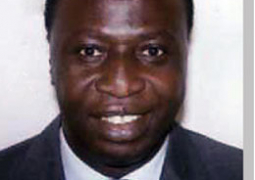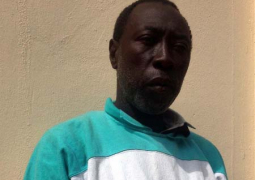While these practices are endemic globally, no region has suffered more from tax evasion and aggressive tax planning than Africa. The continent loses more in illicit financial outflows than it receives in international aid.
The costs to Africa are greater still when we consider the potential impact of the lost revenue. With their abundant oil, gas and mineral reserves, African governments literally have the raw materials needed to lift millions of their people out of poverty. By using the revenues from their natural resources to invest in health, education and infrastructure, the continent’s resource-rich countries can make dramatic gains in poverty reduction and human development.
International tax evasion and avoidance robs African governments — and their people — of the fair proceeds of their own resource wealth. Instead of being used to improve the lives of the communities where the resources are found, these profits are often diverted to tax havens and offshore centres abroad. Africa’s development potential is being short-circuited by these unconscionable practices. The global nature of the problem calls for a robust, multilateral response
Africa’s unshared wealth
Africa is home to vast natural resource wealth, from diamonds and cobalt in the Democratic Republic of the Congo to natural gas and coal in Mozambique. Fuelled by the global commodities boom, Africa’s resource-rich countries are experiencing dramatic growth; half of them saw their average income rise by one-third or more over the past decade. Yet this increased prosperity has not been shared in by those who would benefit from it the most. While countries such as Tanzania and Mozambique have dramatically reduced extreme poverty over this period, Nigeria and Zambia actually registered small increases in poverty despite increased growth.
Despite this uneven progress, the human development record of the past decade shows the results that are possible through good governance, strong economic growth and strengthened policies. For the first time in over a generation, the number of people in poverty in Africa has fallen. Child death rates are declining. There has been progress in combating major infectious diseases. More of Africa’s children are in school. Effectively harnessed, there is no doubt that the revenues from the continent’s natural resource wealth can transform the lives of its citizens.
A drain on Africa’s public purses
While African leaders must take bolder measures to better manage and more equitably use their countries’ resources, we must recognise that a major obstacle lies beyond their shores. Their ability to convert their natural riches into increased prosperity for their citizens is compromised by the tax evasion and avoidance tools deployed by foreign investors.
Africa loses a staggering amount of money from the use of shell companies, offshore companies and tax havens by multinational companies. It is virtually impossible for the region’s understaffed and poorly resourced tax authorities to track payments through these opaque webs. Transfer pricing — the practice of shifting profits to lower tax jurisdictions — costs Africa US$38.4 billion annually. The international community has the responsibility to act; together, they must stop illicit tax practices from draining Africa’s public purses.
Guest Editorial Source: The Elders: Independent Global Leaders Working Together for Peace and Human Rights
“Put an end to the secret, murky and exploitative deals that have robbed Africans of the gains of their natural resource wealth.”
Kofi Annan




